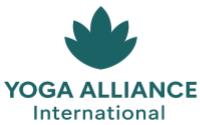Recognition for Yoga Teachers and Schools Based on Skills, Experience, and Training — Not Bureaucracy.
Do You Really Need to Be Registered to Be a Recognized Yoga Teacher?
Do you really need to be registered to be a recognized yoga teacher? This question matters for new and experienced teachers alike. Many yoga professionals wonder if registration is essential or just optional. The truth is simple but often misunderstood. Registration is not legally required in most countries. Recognition as a yoga teacher depends more on your training, skills, and reputation than on your registration status. However, registration can add credibility and opportunities. This blog explores the reality behind yoga registration today. You will learn about history, modern systems, employer expectations, insurance, and student perception. By the end, you will clearly understand whether registration matters for your career.
The Legal Reality of Teaching Yoga
In most countries, yoga teaching is unregulated by law. You do not need government-issued registration to teach yoga. Unlike professions such as nursing or law, yoga has no state licensing boards. Anyone can technically teach yoga if they choose to. This freedom makes yoga accessible but also confusing for new teachers. Many think registration is mandatory because organizations promote it strongly. In reality, these organizations are private registries, not legal authorities. They do not control your right to teach. They provide voluntary recognition systems. Employers, studios, or insurance providers may request registration. Yet, these are policies, not laws. A teacher can still open a studio, teach private classes, or offer retreats without registration. What matters legally is general business compliance. You may need business licenses, tax registration, or liability insurance. Those requirements differ by location but do not involve yoga registration. This distinction is important. Students often assume registered teachers are safer or more skilled. But many excellent teachers are not registered. Their recognition comes from years of practice, mentorship, and results. The legal truth remains clear: you can be a recognized yoga teacher without being registered.
The Role of Yoga Registries
Yoga registries are private organizations, not regulators. The most famous is Yoga Alliance in the United States. Other countries have their own versions, such as Yoga Alliance Professionals in the UK or Canadian Yoga Alliance. These bodies keep lists of teachers who meet their standards. To join, you usually need a certificate from a recognized training program. You also pay yearly membership fees. Registries then allow you to use their logos on your website or business card. Many teachers join to show professionalism. Students may trust a teacher more if they see a registry badge. Studios often prefer registered teachers because it simplifies hiring. Insurance companies sometimes give discounts to registered teachers. Still, registration is not proof of quality. Registries rarely test teaching skills. They check training hours and paperwork, then add you to their database. A registry cannot guarantee a teacher’s experience, wisdom, or authenticity. Some teachers argue that registries function more like marketing networks than true regulators. Others value the sense of community, standards, and visibility. Whether you join depends on your career goals. Registration may open doors, but it is not the only path to recognition.
Recognition Through Training and Experience
Recognition in yoga often comes from training and experience. Students care about how a teacher makes them feel, not about paperwork. A well-trained teacher can inspire trust without any registry badge. Many respected teachers studied directly with gurus or mentors outside modern registries. Their recognition comes from lineage, skill, and presence. Experience builds confidence and authority. When students see consistent results, they spread the word. Word of mouth is one of the strongest forms of recognition. Teaching at retreats, festivals, or studios also builds visibility. None of these require registration. Recognition also grows through content creation. Teachers share knowledge on YouTube, Instagram, or blogs. Students worldwide may recognize them as experts, even without registry membership. Employers sometimes prioritize personality and teaching ability over registry proof. A teacher with charisma and clear instruction often gets hired faster than a registered teacher who lacks confidence. This shows how recognition in yoga is flexible. Registration helps some, but training and experience remain the foundation. If you focus on quality teaching, recognition will follow. Registration may add polish, but students ultimately recognize you by your impact, not your membership card.
The Insurance and Safety Factor
Insurance is often linked with registration. Many insurers prefer registered teachers because it simplifies risk assessment. They assume registration equals verified training. However, this is not always true. Some insurers cover non-registered teachers if they hold a valid certificate from a training program. Others may require additional proof, like references or workshop history. In most cases, registration is one pathway to easier insurance approval. But it is not the only one. Teachers can often negotiate or find insurers who respect their credentials. Safety in teaching does not depend on registration. It depends on skill, awareness, and preparation. A registered teacher can still injure students if careless. A non-registered teacher can keep classes safe with mindful instruction. Many students believe registration equals safety. Teachers should clarify that safety comes from training and responsibility, not a badge. Good teachers invest in continuing education. They attend workshops on anatomy, trauma sensitivity, or adaptive yoga. This practical growth matters more than registry renewal fees. Recognition as a safe teacher comes from consistent safe practice. Registration may make insurance easier, but it does not define your safety or credibility.
Student Perception and Market Reality
Students often do not know what yoga registration means. They may see “Registered Yoga Teacher” and assume it is mandatory. In truth, it is optional. Still, perception shapes the market. A teacher with a registry badge may seem more professional. Students who are new to yoga might trust that label. Studios also use it as a filter to reduce hiring risks. In competitive cities, registration can help you stand out. In smaller towns, reputation often matters more. Students rely on personal recommendations, class experience, and connection with the teacher. Online teaching has changed perception further. Many successful online teachers are not registered. Their recognition comes from authentic communication and consistent presence. Market reality depends on your goals. If you want to work in mainstream studios, registration may help. If you want independence, you can build recognition without it. Transparency matters most. Be honest about your training and approach. Share your philosophy openly. Students care about trust, not paperwork. Recognition grows from real connection, not logos. Registration may shape perception, but your impact creates true recognition.
Alternatives to Registration
Teachers who skip registration have many alternatives. One option is building strong branding. A professional website, social media presence, and testimonials create recognition. Another is mentorship. Aligning with respected teachers or lineages gives credibility. Students value authentic connection to tradition. Continuing education also builds authority. Attending workshops, retreats, or advanced trainings shows commitment. Publishing blogs, videos, or books strengthens recognition further. Community involvement is another path. Hosting free classes, volunteering, or running local events builds trust. Independent associations also exist outside mainstream registries. Some focus on inclusivity, accessibility, or specific traditions. These alternatives can align better with your values than large registries. Insurance companies sometimes recognize these associations as valid credentials. Networking with other teachers also matters. Collaboration builds reputation and visibility. Alternatives require effort but offer freedom. You control your recognition instead of renting it from a registry. Many successful teachers thrive without ever registering. They prove that recognition comes from skill, community, and consistency. Registration is one path, not the only one. Alternatives can be equally powerful when built with care.
Conclusion: Do You Really Need to Be Registered to Be a Recognized Yoga Teacher?
So, do you really need to be registered to be a recognized yoga teacher? The answer is no. Registration is not legally required in most countries. Recognition comes from training, experience, trust, and impact. Registration can help with perception, insurance, and studio access. But it does not define your worth or ability. Many great teachers succeed without it. Students recognize your value through presence, skill, and connection. Registration is a tool, not a rule. You can choose it if it supports your goals. You can also succeed without it. The true recognition of a yoga teacher comes from lived practice, consistent teaching, and authentic care. That is the deeper truth behind the question.


